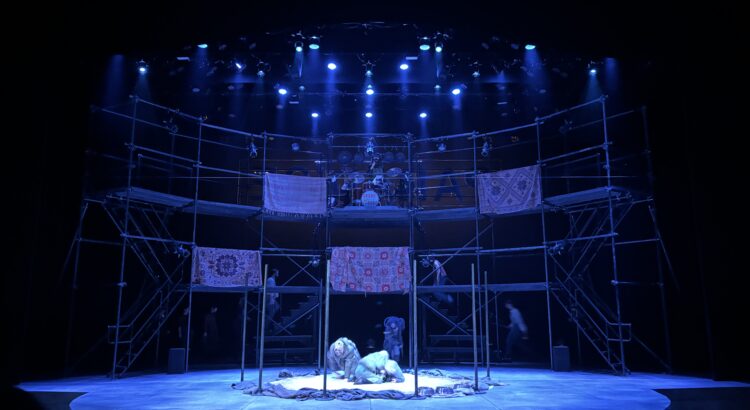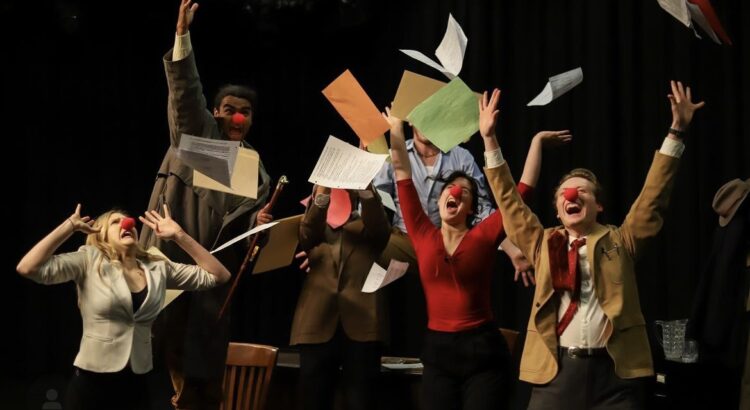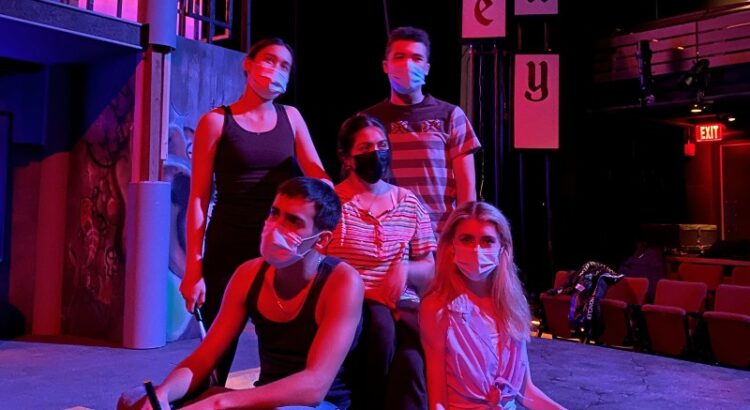Kicking off the 2024 season for the SMTD Theater & Drama department is Caridad Svich’s Arbor Falls. It is a more recent piece, premiering in 2022 at Illinois State University. Directed by Tiffany Trent, this reflective and quiet play invites the audience to reflect on themes of community, fear, and change. According to newplayexhange.org, this is the fourth time the play has been fully produced onstage.
Arbor Falls is one part of Svich’s seven-play cycle entitled American Psalm. The plot revolves around the members of the dwindling members of a church within a small unnamed town. The preacher of the church allows a passing traveler to stay in their church, and the town unforgivingly reacts with gossip and rejection. The traveler exposes the spiritual and moral values that lie within their society’s foundation, as a juxtaposition to their seemingly neutral spirituality. The town members pressure the preacher to send the traveler away, as the traveler does not immediately fit into the community. Each character is unnamed and un-gendered, named “Preacher”, “Traveler” or “Churchgoer”, so the presentation of characters in this show is quite flexible. The freedom of dialogue and character presentation within the script was apparent, and I can appreciate how each production of Arbor Falls would have its own nuances based on the performers and community.
Set of Arbor Falls, Lydia Mendelssohn Theater
The set of the play didn’t entirely establish the environment of the town of Arbor Falls. I understood the simplicity of the townspeople’s viewpoints, their closeness to each other, and the dedication and importance of faith in their community, but I didn’t know exactly where we were (physically, or in time) from the assorted colors and textures. One enchanting aspect of the set was the courteous lighting shining through the top window. It functioned, to me, as the ounce of faith and hope left in the town. Which, is dwindling dimmer and dimmer, until a grand event near the end swoops the piece away.
The dramaturg team describes the play as “..an exploration of love, life, and the mess of all things human.” In my own reflection, this is an accurate description of the overall play, with the humble and morally conflicted Preacher, as well as the judgemental and pious Churchgoers. But moments after the curtain call, I found myself parsing through my memory of what actually had happened the last two hours. Svich’s poeticisms often fell short in terms of plot—their stillness and reflection were often lost to the audience. The story depicts itself at a lull through Act I, until an abrupt scene near the end, where the Traveler turns into a ghost(?) or eagle (?) flying away, absorbing the top of the window fixture. This abrupt moment made me question everything that happened before. This moment felt abstract for the groundedness that was created in the hour and a half before. The scene is still simmering in my mind—possibly the only moment that stuck.
Although, Svich’s blatant messaging regarding how communities treat outsiders was clear. She often explores stories of wanderers and the disenfranchised in her plays, connecting to her roots as a child of an immigrant. This relevant messaging shined through the rather monotonous performance.
The Department of Theater & Drama will present Anton Chekov’s The Cherry Orchard in the Arthur Miller Theater later this spring. Shows will run April 4-14. Tickets are available here.
Photo thanks to University of Michigan SMTD.








